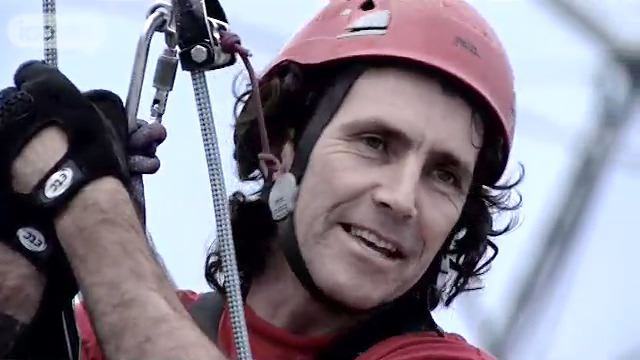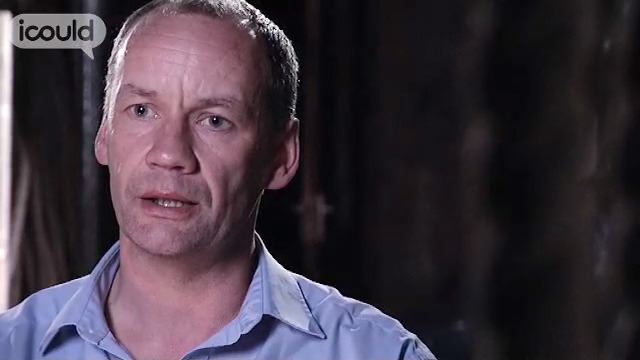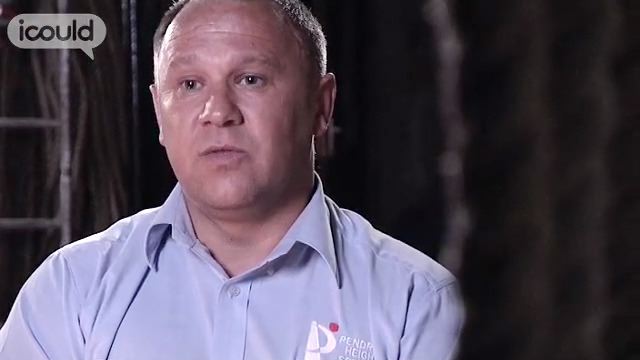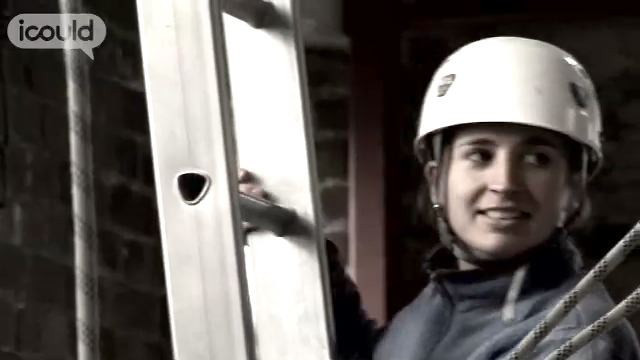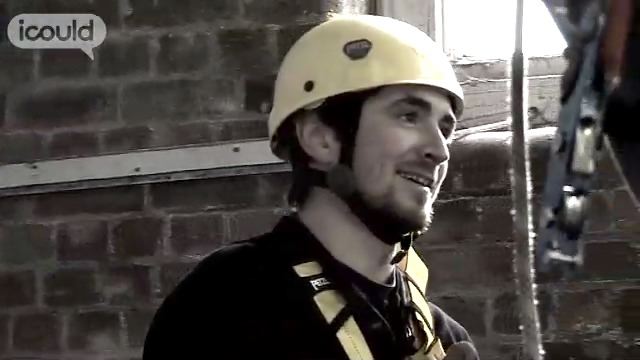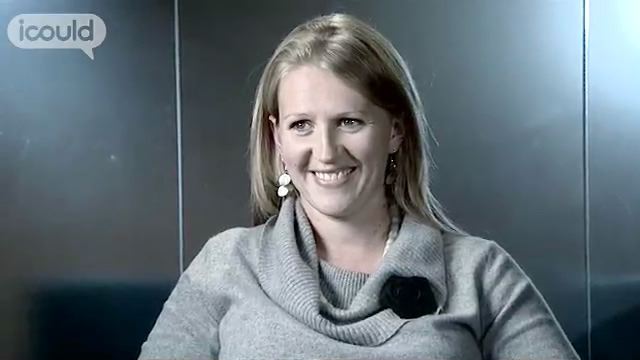Contracts Manager
Pendrich Height Services
Richard H
0:01 Hi there! I’m Richard H. I work for Pendrich Height Services and I’m a contracts manager for the rope access division. The rope access side of the company is a sort of lighter weight, faster approach if you like to gaining access to problematic areas. We’ll take light weight ropes based on mountaineering techniques which have been developed into the industry and we can get to places quickly, safely and, important for some clients, going cheaply and assess the situation from there, and then if we have to then take it further by installing scaffolds or anything like that then we can do that.
00:00:38 I left school at 17 or whatever it was, whatever you do with a few O grades and highers and stuff like that. I ended up working for British Telecom, as a telephone engineer to trade. It was obviously very secure, there was space for manoeuvrability and to put not too fine a point on it, the money was good as well. So, it was going to be a very secure sort of stable working environment, if you like, if that’s what you’re after. And at the time I suppose that must have been what I was after. As I working with BT I met a very good friend of mine who introduced me to climbing and mountaineering and basically that kind of took over and changed the whole format how I look at life and what I’d done with my life basically, and that’s kind of set up my whole life from thereon in.
00:01:18 I got more and more adventurous, I wanted to do more and more climbing and the places I wanted to go and wanted to see I couldn’t do in a normal five day a week job with a certain allocated time off and things like that. I was getting more and more involved in the mountaineering world and an opportunity arose to start a mountaineering shop which seemed the best of both worlds: do a bit of instructing, run a shop, make hundreds of millions of pounds and do nothing but go climbing mountains. Obviously the reality isn’t quite the same as that but, you know, it was a road to then change career, a radical change of career and go and do something that I really wanted to do and take it from there.
00:01:55 I think when I started the shop, I mean, it was obviously a serious buzz of excitement, there was a lot at stake, you know, I had the house at stake and all that sort of stuff on it. For the first year or so I’d say I thoroughly enjoyed it. But what I found was a lot of self employed people will find it perhaps it curtails your own time, and what I found I was doing was that I was talking about climbing to a lot of people in the shop, I was selling a lot of nice kit to people, seeing people going on nice trips and stuff and my own time was being limited and what I could actually do. So, within a couple of years I started to think, ‘is this really for me?’ and, you know, started thinking about alternatives as well. Through contacts that I’d made, climbing contacts and selling equipment I got an opportunity to carry out some very basic rope access work so that gave me the chance to move to the next phase which was to, you know, make a living through climbing as opposed to selling mountaineering kit.
00:02:43 When I started, if you like, becoming a, if not full time, certainly a money earning mountaineer instructor, whatever you want to call it, I think, again, for a while it was fine and stuff but, I was never the best mountaineer in the world, I was never the greatest mountaineer in the world but I was competent and I mean, I was thoroughly enjoying what I was doing. But after, you know, a good few years I started to wonder if, you know, I was overdoing it. If, you know, was it taking the edge off my personal climbing and I felt that it was a little bit. That I wasn’t looking forward to going climbing personally as much as I was because I’d been out for the previous three, four days with clients doing the same old stuff and things. A sort of a transition started to happen, that I was starting to do more and more industrial work and less and less mountaineering work. I don’t know if it’s a conscious decision or just a subconscious decision that I’d done that, and then that left me to actually enjoy my climbing more and I started, I went on two or three expeditions and stuff and thoroughly enjoyed that because I wasn’t trying to make my living on the mountains as well. I wasn’t spending all my time on the mountain.
00:03:43 I think I’m in the very fortunate position at the moment with my job at the moment. The variety of life, the variety of jobs that you come into, the problem solving that you come across when you’re doing these jobs just keeps you always on the go. There’s never anything boring and I’ve managed to progress that from working on squads to running jobs to where I am now which is pretty much, you know, a separate company within the Pendrich flag, if you like. But we’re creating our own working environment, if you like, with people that you can trust, people you like and we’re all making a reasonable living out of it so if we can keep doing this and keep expanding then I don’t really see any great problem with that. You know, it’s a nice situation to be in, it really is. ENDS
Richard H is a Contracts Manager at Pendrich Height Services. He’s a steeplejack who uses ropes to get to “problematic areas”. For him it’s a way of making a career out of his hobby, mountaineering. He has been a BT engineer and run his own climbing shop, but there wasn’t enough actual climbing in either of those for him.
More information about Scaffolders, stagers and riggers
The UK average salary is £29,813
There are 37.5 hours in the average working week
The UK workforce is 47% female and 53% male
Future employment
- Examines drawings and specifications to determine job requirements;
- Examines scaffold tubing and couplings for defects and selects, fits and bolts scaffold tubes until scaffolding reaches required height;
- Lays and secures wooden planking to form working platforms and fixes guard rails, ladders, cradles and awnings as required;
- Erects jib, derrick and similar hoisting equipment and installs ropes, pulleys and other lifting tackle;
- Forms rope slings, ladders, netting and other rigging and measures, cuts and repairs wire or fibre rope.
